
The Damned are an English rock band formed in London in 1976 by lead vocalist Dave Vanian, guitarist Brian James, bassist Captain Sensible and drummer Rat Scabies. They were the first punk band from the United Kingdom to release a single, "New Rose" (1976), release a studio album, Damned Damned Damned (1977) and tour the United States. Nine of the band's singles charted on the UK Singles Chart Top 40.

Zenyatta Mondatta is the third studio album by British rock band the Police, released on 3 October 1980 by A&M Records. It was co-produced by the band and Nigel Gray.
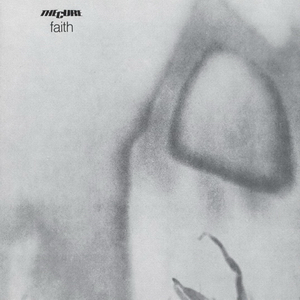
Faith is the third studio album by English rock band the Cure, released on 17 April 1981 by Fiction Records. The album saw the band continuing in the gloomy vein of their previous effort Seventeen Seconds (1980). This stylistic theme would conclude with their next album Pornography (1982).

Degüello is the sixth studio album by the American rock band ZZ Top, released in November 1979. It was the first ZZ Top release on Warner Bros. Records and eventually went platinum. It was produced by Bill Ham, recorded and mixed by Terry Manning, and mastered by Bob Ludwig.

Crazy Rhythms is the debut studio album by American rock band the Feelies. It was released in the United Kingdom on February 29, 1980, and in the United States in April 1980, through British record label Stiff. Its fusion of post-punk and jangle pop was influential on the forthcoming alternative rock genre, with R.E.M., among others, citing the album as an influence. Although it was not commercially successful initially, it has remained critically lauded in the decades since its release.
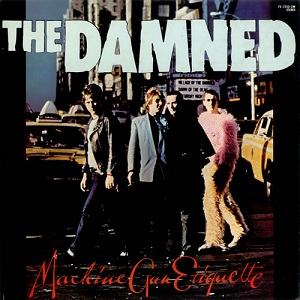
Machine Gun Etiquette is the third studio album by English punk rock band the Damned, released on 9 November 1979 by Chiswick Records. The album peaked at No. 31 on the UK Charts

Flesh and Blood is the seventh studio album by English rock band Roxy Music, released on 23 May 1980 by E.G. Records. It was an immediate commercial success peaking at No. 1 in the UK for one week in June and then returned to the summit in August for another three weeks, in total spending 60 weeks on the albums chart in the United Kingdom. The album also peaked at No. 35 in the United States and No. 10 in Australia.

True Colours is the sixth studio album released by New Zealand band Split Enz, and was their first major commercial success. Released on 21 January 1980, the album featured more pronounced contributions from co-lead singer and songwriter Neil Finn than previous releases. The album's New Zealand and Australian number 1 single, "I Got You", which also broke them internationally, is credited to him. The US release of the album featured "Shark Attack" and "I Got You" in reversed positions due to the latter's success on the single charts.

The Black Album is the fourth studio album by English punk rock band the Damned, and the first to feature Paul Gray on bass guitar. It was released on 3 November 1980 by Chiswick as a double album, with "Curtain Call" filling the whole of side 3, and a selection of live tracks recorded at Shepperton Studios at a special concert for Damned fan club members on side 4. The album peaked at No. 29 on the UK Charts.
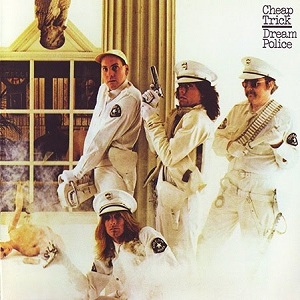
Dream Police is the fourth studio album by American rock band Cheap Trick. It was released in 1979, and was their third release in a row produced by Tom Werman. It is the band's most commercially successful studio album, going to No. 6 on the Billboard 200 chart and being certified platinum within a few months of its release.

Eat to the Beat is the fourth studio album by American rock band Blondie, released on September 28, 1979, by Chrysalis Records. The album was certified Platinum in the United States, where it spent a year on the Billboard 200. Peaking at No. 17, it was one of Billboard's top 10 albums of 1980. It also reached No. 1 on the UK Albums Chart in October 1979 and has been certified Platinum by the British Phonographic Industry (BPI) and the Recording Industry Association of America (RIAA).
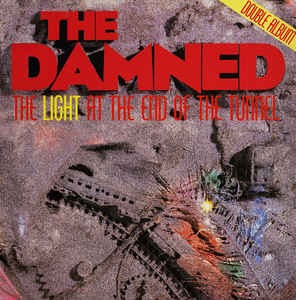
The Light at the End of the Tunnel is a double compilation album by the Damned, released by MCA in 1987 as a retrospective collection. The same name was also given to a concurrently released video cassette and an approved band biography by Carol Clerk.

Hypnotised is a 1980 album released by the Undertones. The album, the second of four released by the band, was recorded at Wisseloord Studios in the Netherlands in December 1979, and at Eden Studios in London in January 1980, with the majority of the songs to appear on the album being written between March and December 1979. In addition, although the primary lyrical concern of the songs upon this album focused upon teenage angst, boisterousness, and heartbreak, several of the songs upon Hypnotised are notably both lyrically and musically more sophisticated than material released upon The Undertones.
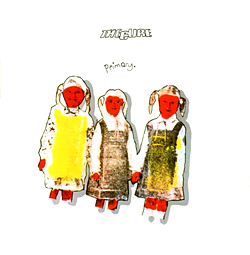
"Primary" is a song by English rock band The Cure, released as the sole single from their third studio album, Faith, on 27 March 1981. It reached number 43 in the UK Singles Chart.

Middle Man is the ninth studio album by Boz Scaggs, released by Columbia Records in 1980. Scaggs hired members of the band Toto as session musicians and shared songwriting credits with them, returning to the commercial, soul-influenced rock of the latter. It would take him eight years to release his following album Other Roads, again retaining the personnel of the three preceding it.
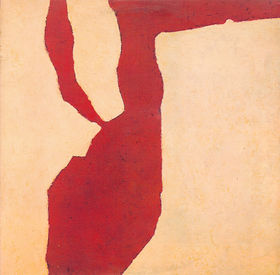
The Up Escalator is an album by Graham Parker and the Rumour, released on 23 May 1980 by Stiff Records as LP and as cassette. In the USA, the album was released by Arista. Released after Parker's successful 1979 album Squeezing Out Sparks, the album features production by Jimmy Iovine.
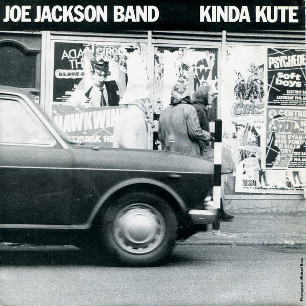
"Kinda Kute" is a song by British singer-songwriter and musician Joe Jackson, which was released in 1980 as the third and final single from his second studio album I'm the Man (1979). Described as a "pop song" by Jackson, the song was written by Jackson and produced by David Kershenbaum. "Kinda Kute" failed to chart in the UK, but reached number 91 on Canada's RPM Top Singles chart.
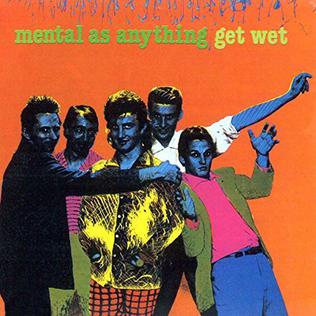
Get Wet is the debut studio album released by Australian band Mental As Anything. It was released in November 1979, and peaked at No. 19 on the Australian Album charts.

Smash It Up: The Anthology 1976–1987 is a compilation album by the English punk and gothic rock band the Damned, released on 22 October 2002. It collects tracks spanning the first eleven years of the band's career, beginning with their debut single "New Rose" (1976) and continuing through their first seven studio albums—Damned Damned Damned (1977), Music for Pleasure (1977), Machine Gun Etiquette (1979), The Black Album (1980), Strawberries (1982), Phantasmagoria (1985), and Anything (1986)—along with the non-album singles "Stretcher Case Baby" (1977), "Lovely Money" (1982), and "Eloise" (1986).
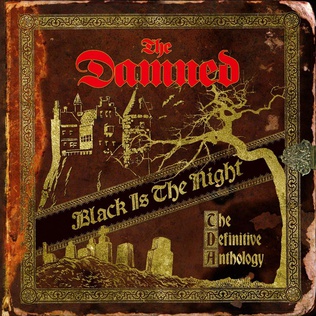
Black is the Night: The Definitive Anthology is a 2-CD, career-spanning compilation album by the British punk rock band the Damned, released on 1 November 2019. It collects tracks from most of the band's studio albums between 1977 and 2018, as well as selected non-album singles and B-sides. It also includes the new track "Black Is the Night". Of the band's eleven studio albums to date, Not of This Earth (1995) and So, Who's Paranoid? (2008) are not represented on the anthology. All tracks were chosen by the band themselves, and sequenced thematically instead of chronologically.




















